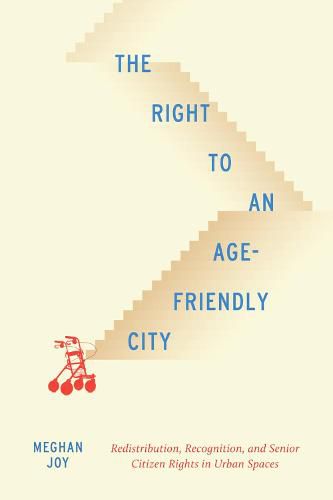Readings Newsletter
Become a Readings Member to make your shopping experience even easier.
Sign in or sign up for free!
You’re not far away from qualifying for FREE standard shipping within Australia
You’ve qualified for FREE standard shipping within Australia
The cart is loading…






This title is printed to order. This book may have been self-published. If so, we cannot guarantee the quality of the content. In the main most books will have gone through the editing process however some may not. We therefore suggest that you be aware of this before ordering this book. If in doubt check either the author or publisher’s details as we are unable to accept any returns unless they are faulty. Please contact us if you have any questions.
A context of aging populations and urbanization has sparked a global movement to make urban spaces age-friendly. The Age-Friendly City program, developed by the World Health Organization, aims to improve local environments for all population groups, promote a positive aging identity, and empower local policy actors to support senior citizens. Despite growing enthusiasm and policy work by local governments worldwide, considerable gaps remain. These lacunae have led scholars and activists alike to align age-friendly city work with the concept of the right to the city. In The Right to an Age-Friendly City Meghan Joy zeroes in on the intricacies of developing an environment that promotes social and spatial justice for the elderly in Toronto. Weaving together the stories, struggles, and victories of local activists, government staff, and frontline service providers, Joy maps this complex policy area and examines the ways in which age-friendly work successfully enhances senior citizens’ access to services and support in the local environment, recognizes the diverse needs of senior citizens in the city, and empowers policy actors from local government and the non-profit sector to support senior citizens. A detailed and timely examination, The Right to an Age-Friendly City offers both broad and tangible insights into the intermingled political, economic, cultural, and administrative changes needed to protect the rights of senior citizens to access urban space in Toronto and beyond.
$9.00 standard shipping within Australia
FREE standard shipping within Australia for orders over $100.00
Express & International shipping calculated at checkout
This title is printed to order. This book may have been self-published. If so, we cannot guarantee the quality of the content. In the main most books will have gone through the editing process however some may not. We therefore suggest that you be aware of this before ordering this book. If in doubt check either the author or publisher’s details as we are unable to accept any returns unless they are faulty. Please contact us if you have any questions.
A context of aging populations and urbanization has sparked a global movement to make urban spaces age-friendly. The Age-Friendly City program, developed by the World Health Organization, aims to improve local environments for all population groups, promote a positive aging identity, and empower local policy actors to support senior citizens. Despite growing enthusiasm and policy work by local governments worldwide, considerable gaps remain. These lacunae have led scholars and activists alike to align age-friendly city work with the concept of the right to the city. In The Right to an Age-Friendly City Meghan Joy zeroes in on the intricacies of developing an environment that promotes social and spatial justice for the elderly in Toronto. Weaving together the stories, struggles, and victories of local activists, government staff, and frontline service providers, Joy maps this complex policy area and examines the ways in which age-friendly work successfully enhances senior citizens’ access to services and support in the local environment, recognizes the diverse needs of senior citizens in the city, and empowers policy actors from local government and the non-profit sector to support senior citizens. A detailed and timely examination, The Right to an Age-Friendly City offers both broad and tangible insights into the intermingled political, economic, cultural, and administrative changes needed to protect the rights of senior citizens to access urban space in Toronto and beyond.